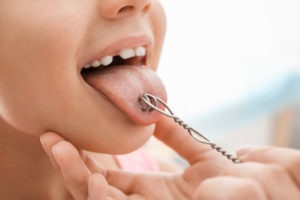
Dysarthria is diagnosed, in most cases, by a specialist who studies speech and language. Your doctor may recommend seeing a speech-language pathologist for several reasons:
- Your child is falling behind in language and speech development
- There is reason to believe your child may have difficulty speaking, such as a malformation or impairment
- Your baby is showing signs of difficulty controlling their mouth or making age-appropriate sounds
If there are concerns about your baby or toddler’s speech development, it is important to have the child evaluated. Getting a dysarthria diagnosis is the first step in a journey to help your child learn to live with and overcome this impairment.
It may be possible that your doctor or a speech-language pathologist can identify an issue very early on. This is based on how your infant moves their mouth, if they are able to make common sounds, and even feeding difficulties that may be related. Do not hesitate to mention it to your child’s pediatrician if you believe there may be an issue.
The Diagnostic Exam for Dysarthria is Non-Invasive
If you take your child to a speech-language pathologist, they will conduct an examination to understand what is going on and how it is affecting the child. They may also rule out other causes of their symptoms, such as issues with the baby’s hearing.
In children too young to speak words and sentences, the doctor will take a close look at the structures in and around their mouth, as well as how they move their lips and tongue. They will pay careful attention to how the child breathes to ensure they have enough breath to vocalize.
They will also note how the child responds to speech. If there is no other reason that may be causing the unusual mouth movements, lack of language progression, or difficulty with speech, then a dysarthria diagnosis may fit.
"If your child was born with a birth injury, or cerebral palsy, we can help."
Dysarthria Signs May Not Appear Until Later
In many cases, there are no noticeable signs of a speech or language issue until the child does not gain language skills on par with their peers, or there is an issue with the child’s ability to speak. In preschoolers or older children, you might notice:
- Slow or extremely fast speech.
- Slurred speech or mumbling.
- Extremely soft speech.
- Hoarse or nasal speech.
- Difficulty moving the jaw, lips, and tongue to form sounds properly.
Any of these signs may warrant a conversation with your child’s doctor about what you see and whether you should be concerned.
Causes of Dysarthria in Infants and Young Children
Dysarthria occurs for one of two reasons: brain damage or an issue with the structures that play a role in speech, such as the mouth, tongue, or voice box. In many cases, it may have been possible for doctors to identify the risk factors and prevent the brain injury from ever occurring.
When this does not happen or is not possible, the child may suffer dysarthria and other symptoms. Some ways a newborn or infant may suffer injuries and develop dysarthria include:
- Suffering a stroke.
- A traumatic brain injury before, during, or after birth.
- A tumor in the brain.
- Cerebral palsy.
- Muscular dystrophy.
"We know first-hand what you are going through."
Dysarthria and Birth Injury Legal Cases
If you believe your child’s speech and language challenges occurred as a result of negligence from a medical care provider, you should discuss your case with a medical malpractice attorney. They may be able to help you build your case, proving that the doctor or nurse failed to prevent or otherwise caused your child’s condition.
This could allow you to pursue a payout from the doctor or hospital that provides for your child’s treatment, therapy, any necessary devices or tools, related costs, and non-economic damages.
It is important to reach out to an attorney as soon as you can about your child’s diagnosis. While many states allow you to toll the deadlines in birth injury cases for more time, there are still statutes of limitations and repose in place that you may need to follow.
"Our Birth Injury Lawyers have recovered over $750+ Million on behalf of our clients."
Discuss Your Child’s Case Today for Free
At the Birth Injury Lawyers Group, we can help. You can get a free case review and learn about the potential of your medical malpractice birth injury claim. If the law firm believes your child suffers from dysarthria as a result of a preventable birth injury from medical negligence, they may pursue compensation at no upfront expense to your family.
Call (800) 222-9529 now to get started with your complimentary consultation.
"We are committed to helping families who have suffered medical negligence."
